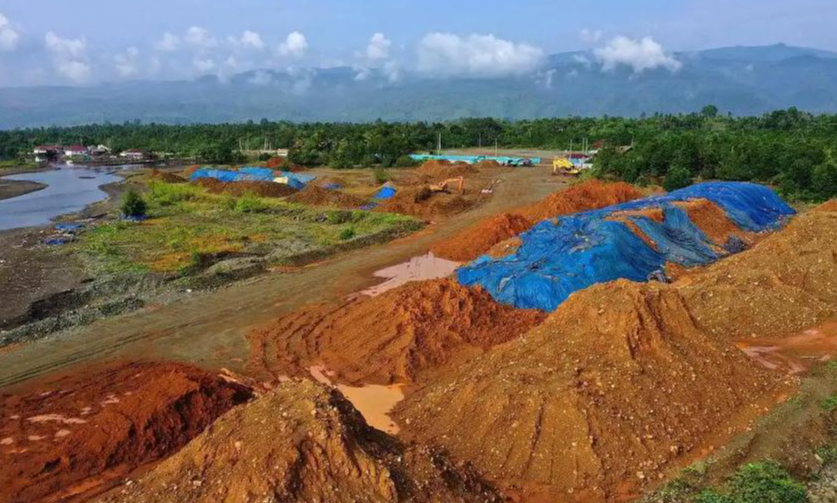Indonesia's Nickel Hopes Falter Amid China's EV Push
Advertisements
As the global drive for carbon neutrality accelerates, the renewable energy industry is undergoing exponential growth, with batteries emerging as pivotal components of this new technology. Indonesia, being one of the richest countries in nickel resources, had the potential to leverage its natural advantages to industrialize rapidly. However, technological shifts and market fluctuations have disrupted Indonesia's plans, often leaving its “nickel dream” in ruins.
For a long time, Indonesia has relied heavily on nickel ore exports as a cornerstone of its economy. In recent years, the country has attempted to shake off its traditional role as a mere "resource exporter" by implementing policies aimed at boosting local industry chains, aspiring to ascend to a more competitive stance in the global renewable energy arena.
To facilitate this transition, Indonesia has rolled out a series of measures, including a ban on unprocessed nickel ore exports, mandating companies to process ore locally before shipping it abroad. Furthermore, efforts were made to attract international giants like BASF and Eramet to invest $2.6 billion in establishing nickel-cobalt refining plants. This ambitious plan aims to create a so-called resource "lockchain," drawing capital to position Indonesia as a significant player in the global battery manufacturing landscape.
However, Indonesia's gamble on nickel has not paid off as anticipated. The price of nickel surged momentarily before plummeting sharply, compounded by significant technological advancements within the renewable battery sector, raising red flags regarding the viability of Indonesia's strategy.

In the competition of renewable battery technologies, lithium-ion batteries, particularly the ternary lithium and lithium iron phosphate (LFP) variants, have long held dominant market positions. Initially, ternary lithium batteries gained favor due to their high energy density, yet, as LFP technology continued to mature, its low costs, high safety, and longevity became increasingly apparent. Today, the market share of LFP batteries is rapidly increasing, even beginning to surpass that of ternary lithium batteries.
Nickel is a crucial raw material for ternary lithium batteries, and the demand for nickel has been closely tied to the performance of this technology. Nevertheless, with global battery giants, such as CATL, ramping up investments in LFP battery technology, the strategic significance of nickel has drastically weakened, directly impacting the projected demand for nickel and undermining Indonesia's plans betting on nickel resources.
The stringent export bans imposed by Indonesia were initially intended to attract foreign investment towards local processing industries, thereby enhancing value added within the sector. However, this policy has led to some unexpected adverse effects:
1. Capital Flight
The widespread distribution of global nickel resources, coupled with Indonesia's policy barriers, has prompted many international firms to establish supply chains in other countries. The strategy of attempting to attract investment through a "resource monopoly" has consequently diminished Indonesia's competitiveness in the international market.
2. Economic Downturn
The export ban has resulted in a sharp decline in nickel mining activities, directly impacting jobs and tax revenues in related industries. The nickel sector, once a backbone of the economy, has gradually turned into a burden.
3. Weak Market Demand
As nickel demand growth has slowed while supply remained unaffected, nickel prices have lingered at low levels for an extended period. The strategy of converting resource advantages into economic gains has increasingly become a quagmire for Indonesia.
The technological undercurrents swirling within the renewable energy sector have brought about a new global landscape. China's advancements in LFP battery technology are significantly reshaping the distribution of resources globally. Thanks to innovative technologies, Chinese companies have successfully lowered battery manufacturing costs while reducing dependency on scarce resources like nickel. This shift not only alters the competitive landscape in the global battery market but also poses greater challenges for nations that rely on resource exports.
In contrast, Indonesia's resource-driven strategy shows a lack of agility in responding to market changes. In this new era dominated by technological innovation, mere reliance on resource endowments has proven insufficient for establishing a competitive edge.
Looking Forward: Indonesia’s Pathway from Resources to Industry!
Amidst these challenges, Indonesia must recalibrate its strategies to break free from resource dependence and promote economic development through more flexible and comprehensive policies.
Enhancing the Investment Environment: Reducing policy barriers to create more favorable investment conditions for international enterprises is essential in attracting capital to the local market, helping the industrial chain move up the value ladder.
Pursuing Industrial Diversification: Rather than focusing solely on nickel mining, Indonesia should actively develop areas such as battery recycling and energy storage systems to improve resource efficiency and value addition.
Deepening International Cooperation: Establishing partnerships with technologically advanced countries and enterprises can leverage their cutting-edge technologies and management experiences, accelerating the growth of the local renewable energy industry.
Creating a Complete Industrial Ecosystem: By supporting policies that encourage upstream and downstream companies to settle locally, Indonesia can build a closed-loop industrial chain extending from resource extraction to end-product manufacturing, enhancing its competitiveness.
The End of Resource Bonanza and the Rise of the Innovation Era!
Indonesia's efforts to leverage its nickel resources for economic transformation reflect the broader challenges facing resource-dependent economies in an age of technological upheaval. The future of renewable energy competition will be led by technology frontrunners, rendering strategies based solely on resource dependence increasingly marginal.
For Indonesia, while its nickel reserves are undoubtedly a valuable asset, the critical issue lies in transforming resource advantages into industrial strengths through policy innovation and technological collaborations. Without this transformation, the dream of an industry anchored in nickel could tragically turn into a lonely and fruitless endeavor.
post your comment